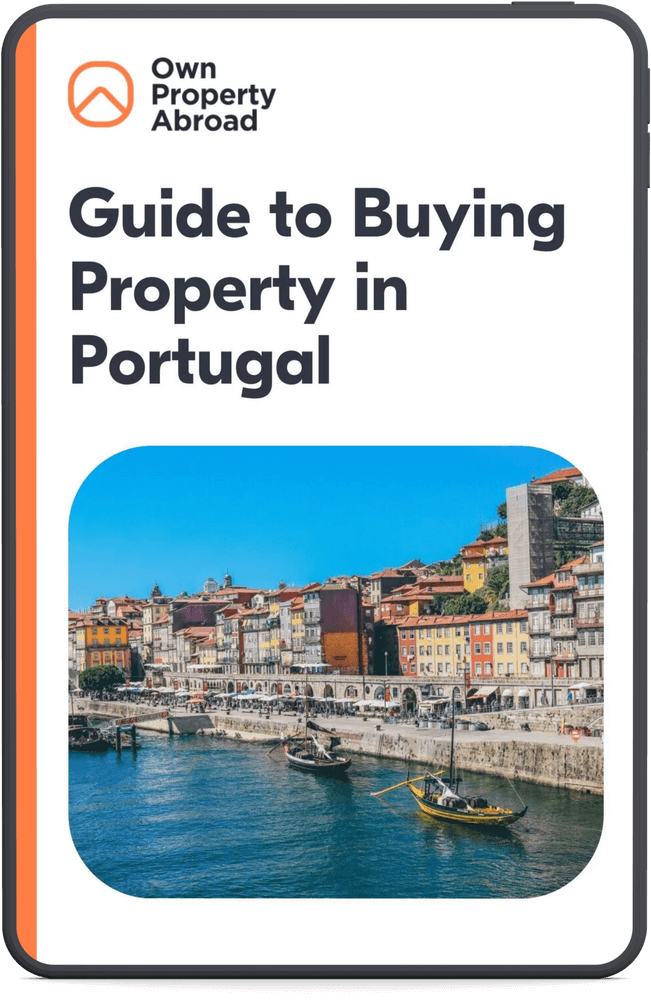Who can apply for residency in Portugal?
All foreigners can apply for residency in Portugal, whether they plan to study, live, invest, or work in Portugal. Non-EU citizens need to obtain a residence visa to get residency in Portugal. The specific type of residency visa required depends on the length and purpose of the stay. These are the most essential requirements for applying for residency in Portugal:
- Residence visa for Portugal: Non-EU citizens must obtain a residence visa to enter Portugal to apply for a residence permit. The Serviço de Estrangeiros e Fronteiras (SEF) is responsible for processing and issuing residence visas. EU citizens can travel to Portugal without a residence visa for Portugal.
- Residence permit application: Once you arrive in Portugal, the next step is to visit the SEF to apply for your residence permit. It’s important to know that the residence permit differs from the residence visa. This permit is crucial for acquiring permanent residency in Portugal.
- Exemption for EU, EEA, and Swiss Citizens: EU, Swiss, and European Economic Area (EEA) citizens don’t need a residence visa to live in Portugal. They have the right to reside in the country without a specific visa for Portugal. However, they are still required to complete particular registration procedures.
- The registration process: For those eligible to live and work in Portugal without a visa, the process involves registering with the Portuguese tax authorities and the local city hall (camara municipal). Upon completion, a temporary residence certificate valid for five years will be issued.
Be aware of the difference between temporary and permanent residency visas in Portugal.
Valuable insights and practical advice, distilled from years of expertise and real-world experience.


Temporary vs. permanent residency
Temporary residency, obtained through a residence permit, allows individuals to legally reside in Portugal for a specific period based on their purposes, such as work, study, or family reunification. Requirements and conditions for temporary residency in Portugal vary; applicants must meet Portuguese immigration criteria to obtain a residency visa for Portugal.
Permanent residency grants people the right to live in Portugal indefinitely. To get permanent residency, someone must fulfill specific requirements, including a minimum period of continuous legal residence and compliance with Portuguese immigration regulations.
For EU citizens, residency rights differ due to free movement within the European Union. Getting permanent residency in Portugal as an EU citizen is more straightforward than for non-EU citizens. Although they can live in Portugal without a specific Portuguese residency visa, registration may be necessary for more extended stays.
It’s important to note that permanent residency is not the same as Portugal or EU citizenship, which provides additional rights and privileges, including voting. Portugal citizenship requires meeting different criteria, such as a longer residency period and language proficiency.
Advantages of residency in Portugal
Being a Portuguese citizen gives you entry to many countries without a visa for Portugal and gives you other rights and perks. Some of the best benefits of being a resident of Portugal are:
- Travel freely inside the EU: Enjoy the freedom to move, live, and work anywhere in the European Union (EU) and the European Economic Area (EEA).
- Social security in Portugal: People who live in Portugal can use the country’s social security system, which offers perks like pensions, help for unemployed people, and health care coverage.
- Access to education: Residents of Portugal have access to a high-quality education system, which includes free public schools and subsidized higher education. Portuguese residents can get help with schooling through scholarships and loans.
- Low cost of living in Portugal: The cost of living in Portugal is low compared to other countries. Lisbon is even the cheapest capital city in Western Europe.
- Dual citizenship: As Portugal allows dual citizenship, you can keep your original passport and become a Portuguese citizen at the same time if you live in Portugal.
- Apply for Portuguese nationality: After being a resident for at least five years, you can apply for Portuguese nationality and obtain EU citizenship.
- Living in a safe country: Portugal is one of the safest countries in the world. A Portuguese residency visa gives the right of moving to Portugal and live in one of the safest countries in the world.
Another advantage is that it is relatively easy to get residency in Portugal compared to many other countries.
How to get residency in Portugal?
Many foreigners wonder how to get residency in Portugal. There are several ways foreigners can get Portugal residency, including residency by investment, residency by retirement, and residency by naturalization. Naturalization is becoming an official Portuguese citizen after legally residing in Portugal for a specified period and meeting specific requirements.
Citizenship by marriage or legal partnership is also possible, allowing spouses or partners of Portuguese citizens to obtain citizenship. Additionally, individuals with Portuguese descent, connections to former Portuguese colonies, Sephardic Jewish heritage, birth in Portugal, or adoption under 18 may also be eligible for Portuguese citizenship.
It is important to note that residency in Portugal is not always the same as tax residency in Portugal. You read how to become a tax resident in Portugal in our complete guide about tax residency in Portugal, where we also explain what non-habitual residency in Portugal is.
Most foreigners get residency in Portugal through investment in real estate.
1. Portugal citizenship by investment
Individuals can use the Portugal Golden Visa program to obtain residency in Portugal through investment. The program of Portuguese citizenship by investment offers residency permits to those who make specific investments in the country. The most popular route is to buy property in Portugal and get residency, with a typical minimum investment of around €250,000 ($273,250), although there may be exceptions.
How much to invest in Portugal to get residency depends on your investment option, as several other options are available for the Golden Visa program. These include:
- Invest €280,000 ($306,040) in real estate in Portugal
- Invest €250,000 ($273,250) in Portuguese arts and culture
- Invest €250,000 ($273,250) in creating a business employing at least ten people
- Invest €500,000 ($546,500) in scientific research
- Invest €500,000 ($546,500) in a small to medium enterprise (SME) in Portugal
- Invest €500,000 ($546,500) in Portuguese investment funds
- Transfer €1.5 million ($1.64 million) to a Portuguese bank account
One significant advantage of the Golden Visa program is that applicants are not required to move to Portugal permanently, even after they buy property in Portugal and get residency. The residency requirements are relatively relaxed, especially compared to other EU countries.
To be eligible for the Portugal Golden Visa program, individuals must meet specific requirements for residency in Portugal, including a clean criminal record, fulfilling tax obligations, and passing a Portuguese language test at the A2 level. While the official requirement for residency is five years, applicants only need to spend a minimum of seven days per year in Portugal for five consecutive years.
Many people buy property in Portugal and get residency through the Golden Visa Program. Investing in Portugal through the Golden Visa program provides an opportunity to acquire residence and enjoy the benefits of living in Portugal while maintaining flexibility in terms of time spent in Portugal.

2. Portugal residency by retiring in Portugal
A Portuguese residency permit is viable if you’re considering retiring in Portugal. The process involves applying for a Portugal retirement visa, also known as a D7 Visa, in your home country. Here are the typical requirements for the Portugal retirement visa:
- Valid passport: Ensure your passport is valid for your intended stay in Portugal.
- Proof of income: Demonstrate a regular monthly income of at least €760 ($831) or €9,120 ($9,968) per year. This assures that you can support yourself financially during your retirement.
- Proof of health insurance: Obtain comprehensive health insurance coverage to ensure your healthcare needs are taken care of while living in Portugal.
- Criminal background check: Provide a criminal background check to confirm your good standing.
The Portugal retirement visa application process generally takes a minimum of one month. Once approved, you will be granted a temporary residence permit, initially valid for one year. The Portugal retirement visa can be renewed for two-year periods as long as you continue to meet the requirements for residential status.
One significant advantage of retiring in Portugal is the tax benefits. You can be exempted from foreign-source pensions, dividends, royalties, and interest income for ten years. Including your dependents in the residency application is also possible, allowing them to enjoy the benefits of living in Portugal alongside you.
When choosing a place to retire in Portugal, popular options among retirees include Porto, the Algarve, Alentejo, and Lisbon. For further guidance on the best areas to retire in Portugal, refer to our dedicated article.
3. Other Ways to Get Residency in Portugal
Apart from the previously mentioned methods, there are additional ways to obtain a residency permit in Portugal. Here are some alternatives to consider:
- Residency in Portugal by marriage: You can apply for Portuguese residency and citizenship by marrying a Portuguese citizen. Initially, you will obtain a five-year temporary residence permit, which can later be converted into permanent residency. It is not necessary to continuously reside in the country during this period. A minimum three-year marriage, proficiency in the Portuguese language, and strong ties to the Portuguese community are required for citizenship eligibility.
- Residency in Portugal through study: Studying in Portugal offers a temporary option for living. The study period should not exceed six months to qualify for a residence permit. Students are typically allowed to work part-time, subject to SEF’s approval. Upon completing their studies, students receive a one-year job search permit to find employment. Once employed, they can transition to worker status, allowing them to live and work in Portugal.
- Residency in Portugal by family reunification: Portuguese laws allow holders of a valid residence permit to bring their immediate family members or dependents to Portugal through family reunification. SEF requires various supporting documents, including proof of family ties, identification documents, accommodation details, means of subsistence, and a criminal record certificate.
- Residency in Portugal by working: Emigrating to Portugal and securing employment is another route to residency in Portugal. Citizens of certain non-EU countries with bilateral agreements, such as the US, Canada, Australia, New Zealand, Japan, and Israel, can apply for a work residence visa within 90 days of arrival in Portugal. Other non-EU nationals must have a job offer in Portugal before applying for a work visa in their home country. The work visa will eventually be converted into a residence permit upon entry.
When pursuing any of these residency options, it’s crucial to adhere to the specific requirements outlined by the Portuguese immigration authorities. For detailed information, consult the relevant resources on the Portuguese embassy website, SEF’s website, or Diário da República Eletrónico (DRE) for legal requirements and application procedures.

Apply for Portuguese nationality: From temporary resident to permanent resident in Portugal by naturalization
Obtaining a temporary residency permit in Portugal is pretty straightforward, while many foreigners are left wondering how to get permanent residency in Portugal. Foreigners can go from temporary residence to permanent residence by naturalization. Becoming a naturalized Portuguese citizen after staying in Portugal for at least five years with a temporary residency visa is possible.
There are several requirements for permanent residency in Portugal. The applicant needs to show they have become a part of the Portuguese community well enough. People who have been guilty of a crime in Portugal, which is punishable in Portugal with a sentence of at least three years, or who have been involved in terrorist actions cannot get permanent residency in Portugal.
The five years taken into consideration should be recent. However, you can still apply for the naturalization process if you have lived in Portugal for at least five years as long as it was within the past 15 years. Applying for Portuguese nationality can be done online.
Where to apply for Portuguese residency?
You can submit your application online once you have met the requirements for residency in Portugal. Alternatively, you can apply in person at various locations, such as the Portuguese embassy website.
How long does it take to get residency in Portugal?
How long it takes to get residency in Portugal depends on the type of residency and specific circumstances. The processing time for temporary residency applications can range from a few weeks to several months, while obtaining permanent residency in Portugal is generally longer than temporary residency, ranging from several months to a few years.
How much does Portuguese residency cost?
The cost of obtaining a temporary or permanent residency visa in Portugal can vary depending on several factors. The application fees for applying for a residency permit typically range from €100 ($109) to €500 ($547) or more, depending on the type of residency and specific circumstances. This does not include any fee if you hire a professional visa agent.
Become a Portuguese resident with Own Property Abroad
Do you want to become a resident of Portugal? Own Property Abroad can assist you in this process. Thanks to our knowledge and experience in the local market, we can help with becoming a resident in Portugal and real estate matters, such as legal requirements, finding suitable properties, negotiating the best deals, and conducting due diligence.
For further information on how we can assist you, kindly drop your details below or email us at [email protected].
Valuable insights and practical advice, distilled from years of expertise and real-world experience.


Frequently Asked Questions (FAQs)
How can I get residency in Portugal?
You can get residency in Portugal in several ways, such as by investing, retiring, marrying a Portuguese citizen, studying, or working in Portugal. Many foreigners buy property in Portugal and get residency through the Golden Visa Program.
What are the Portugal residency requirements for US citizens?
US citizens interested in obtaining residency in Portugal can explore different ways, such as the Golden Visa Program, retirement visa (D7 Visa), or work permits. Specific requirements may vary depending on the form but generally involve fulfilling financial, legal, and documentation criteria as mandated by the Portuguese immigration authorities.
Does Portugal allow dual citizenship?
Yes, Portugal allows dual citizenship. This means you can become a Portuguese citizen without giving up your other citizenship. It is essential that the other country also allows dual citizenship as well.
Is it easy to get residency in Portugal?
Getting residency in Portugal can be relatively straightforward, depending on the chosen route and individual circumstances. The process varies, such as investment-based programs, retirement, work permits, or family reunification. Permanent residency can be acquired after fulfilling specific requirements, such as continuous legal residence, language proficiency, and integration into Portuguese society.
How long does it take to get residency in Portugal?
How long it takes to get residency in Portugal depends on several factors, including the type of residency, individual circumstances, and the efficiency of the application process. Processing times can range from a few weeks to several months.
How do you get residency in Portugal after Brexit?
After Brexit, UK citizens can obtain residency in Portugal by applying for a residency permit. Options for temporary residency in Portugal for UK citizens are available, allowing them to live and work in Portugal during the transition period. It’s essential to follow the specific requirements and procedures set by the Portuguese immigration authorities so you know how to get residency in Portugal after Brexit.
How to get residency in Portugal for US citizens?
US citizens can get residency in Portugal in various ways, such as the Golden Visa Program, D7 Retirement Visa, or work permits. Each method has specific requirements and procedures to follow. Living in Portugal as an American involves fulfilling the necessary immigration and residency requirements while enjoying the benefits of residing there.
How to get residency in Portugal for EU citizens?
EU citizens can get residency in Portugal without needing a residency visa. If they plan to stay for an extended period, they may need to register their presence with Portuguese authorities. This process confirms their temporary or permanent residency visa as an EU citizen in Portugal. Specific procedures and requirements for EU citizens may vary, and it’s advisable to consult with the Portuguese immigration authorities for precise information.
How to get a residency card in Portugal?
Getting a residency card in Portugal involves following the appropriate application process, which may require submitting necessary documents, fulfilling specific criteria, and undergoing the required procedures. Is it easy to get a residency card in Portugal? This depends on individual circumstances and compliance with Portuguese immigration regulations. It’s recommended to consult with the Portuguese immigration authorities or seek professional advice for accurate information and assistance.






One Response
Great insights, thank you for the article.